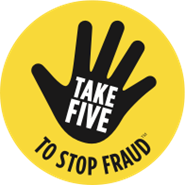
Purchase Scams
How to protect yourself from scammers promoting goods or services that don’t exist
What is purchase fraud?
In a purchase scam, the victim pays in advance for goods or services that are never received. These scams usually involve online platforms such as an auction website or social media.

Online shopping
Online shopping provides criminals with an opportunity to trick people into paying for goods and services that don’t exist.

Cloned websites
Criminals also use cloned websites with slight changes to the URL to trick you into thinking you’re purchasing from the genuine site.

Payment prior to delivery
They may also ask for payment prior to delivery and send you fake receipts and invoices that appear to be from the payment provider.

Low prices and high-demand goods or services
Common scams include a criminal posing as the seller of a car or a technology product, such as a phone or computer, which they advertise at a low price to attract buyers. Criminals also advertise items such as fake holiday rentals and concert tickets.

Bank transfers
While many online platforms offer secure payment options, the criminal will persuade their victim to pay via a bank transfer instead. When the victim transfers the money, the seller disappears, and no goods or services arrive.
How to spot purchase fraud
- Prices are too good to be true, heavily discounted, or considerably cheaper products/services compared to market average.
- Being asked to deviate away from secure payment platforms such as PayPal or card purchases and being asked to pay via bank transfer instead.
- The website or pages that goods and services are being purchased from was created in past few days or weeks.
- The website or page has poor design, grammar mistakes, and low-quality images.
- Pressure or time constraints are being placed on making the sale or placing a deposit.
- Be wary of products being sold via social media.
How to stay safe from purchase fraud
- When facing a request for personal or financial information or a payment, stop and think before clicking on links or replying to texts.
- Never allow a random caller access to your computer or devices. If it doesn’t feel right, hang up.
- Avoid logging on to financial accounts using public WiFi.
- Banks and police will never ask you to move money to a ‘safe account’ because your ‘money is at risk’. If this happens, hang up, and call them back on their correct number. Scammers often change the caller ID to make the number seem trustworthy.
- Only give your information out to services you’ve consented to and expecting to be contacted by.
Other types of common scams
Fraud and Security
Impersonation Scams
Staying safe from fraudsters impersonating people or organisations you trust.
Fraud and Security
Investment scams
Protecting yourself from criminals offering fake investment opportunities.
Useful Resources

Action Fraud
Action Fraud is the UK's national reporting centre for fraud and cybercrime. This is where you should report fraud.

Get Safe Online
Get Safe Online is the UK's leading awareness resource, and offers free online security advice to help protect people and businesses from fraud and other issues.

Take Five
Take Five offer impartial advice to help prevent email, phone and online fraud. The national campaign focuses on criminals who impersonate trusted organisations and gives you tools to help fight fraud.